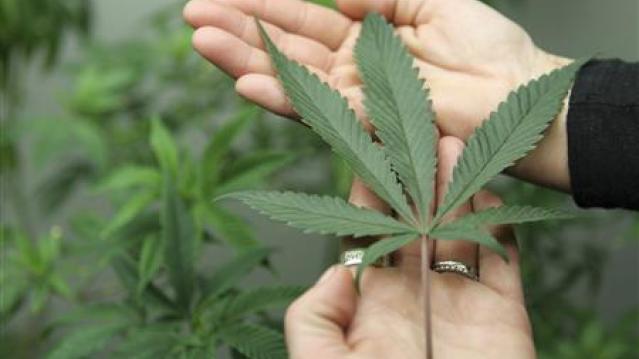American Kids Aren’t Such Stoners After All

Turns out the young people of America are not as high as you thought they were. The use of illicit drugs, alcohol and tobacco among young people has been falling, according to new data.
While the nationwide rate of illicit drug use has gone up, the percentage of youths using illicit drugs has declined, according to a report from the Substance Abuse and Mental Health Service Administration (SAMSHA), part of the Department of Health and Human Services. The illicit drugs include marijuana/hashish, cocaine (including crack), hallucinogens, heroin, inhalants or prescription-type psychotherapeutics.
Among youths aged 12 to 17, the rate of illicit drug use was down to 8.8 percent in 2013 from 9.5 to 11.6 percent in the years 2002 to 2007, the SAMSHA study said.
Related: New Lifetime Estimate of Obesity Costs: $92,235 Per Person
But in 2013, drug use among those 12 or older was up to 9.4 percent from the 7.9 to 8.7 percent found between 2002 and 2009. The rise was attributed to increased rates of marijuana use, both medical and nonmedical, among adults aged 26 and older — and that rise probably doesn't fully reflect the recent legalization of recreational marijuana in Colorado, Washington, Oregon and Alaska.
The report also suggested that alcohol is losing some of its allure for the young.
Between 2002 and 2013, the percentage of underage people who drank declined from 28.8 percent to 22.7 percent. In addition, the proportion of binge drinkers — those who consumed five or more drinks during one occasion — decreased from 19.3 percent to 14.2 percent in the same years.
In additional good news, tobacco and cigarette use among all age groups has declined sharply since 2002.
Quote of the Day: A Big Hurdle for the Tax Cuts

“He goes in and campaigns on an issue, and the challenge is he then talks about executing drug dealers. Why do you think the press is going to cover the tax cuts if you’ve given them the much more exciting issue?”
-- Grover Norquist, president of tax-cutting advocacy group Americans for Tax Reform, on President Trump’s failure to sell the tax law.
The Obamacare Mandate That Could Produce $12 Billion in Fines in 2018

Republicans effectively eliminated the individual Obamacare mandate in the tax package signed late last year. Although the new regulation reducing the mandate penalty to zero doesn’t take effect until 2019, President Trump has cited the rule change as a victory over the health law so many conservatives oppose. “Essentially, we are getting rid of Obamacare. Some people would say, essentially, we have gotten rid of it," Trump told a crowd in Michigan two weeks ago.
However, many parts of the Affordable Care Act are still in effect and will continue to operate even after the individual mandate is eliminated in 2019.
In particular, the employer mandate, which requires companies with more than 50 employees to offer health benefits or face fine of roughly $2,000 per worker, will continue to play a significant role in the Obamacare system. The Congressional Budget Office estimates that the mandate will produce more than $12 billion in fines in 2018 alone.
Some conservative groups are pushing lawmakers to stop enforcing the employer mandate, but the IRS is still working to enforce the law. According to The New York Times Monday, the IRS is sending out notices to more than 30,000 businesses that have failed to comply.
Chart of the Day: It’s Still the Economy, Stupid

Security may be the top policy issue for Republican voters, but the economy is the top concern for Democrats, independents and voters overall, according to Morning Consult’s latest polling on the midterm elections. Health care is third on the list, followed by “seniors’ issues.” The results are based on surveys with more than 275,000 registered U.S. voters from February 1 to April 30.
Number of the Day: $13 Billion

An analysis by Bloomberg finds that the roughly 180 companies in the S&P 500 that have reported earnings for the first three months of the year saved almost $13 billion thanks to the corporate tax cut enacted late last year. Those companies’ effective tax rate dropped by more than 6 percentage points on average. About a third of the tax savings went to 44 financial firms.
How a Florida Doctor with Social Ties to Trump Delayed a $16B Billion VA Project

A West Palm Beach doctor who is friends with Ike Perlmutter, the chairman of Marvel Entertainment and an informal adviser to President Trump on veterans’ issues, has held up “the biggest health information technology project in history — the transformation of the VA’s digital records system,” Politico’s Arthur Allen reports. Dr. Bruce Moskowitz “objected to the $16 billion Department of Veterans Affairs project because he doesn’t like the Cerner Corp. software he uses at two Florida hospitals, according to four former and current senior VA officials. Cerner technology is a cornerstone of the VA project. … Moskowitz’s concerns effectively delayed the agreement for months, the sources said.” Read the full story.

